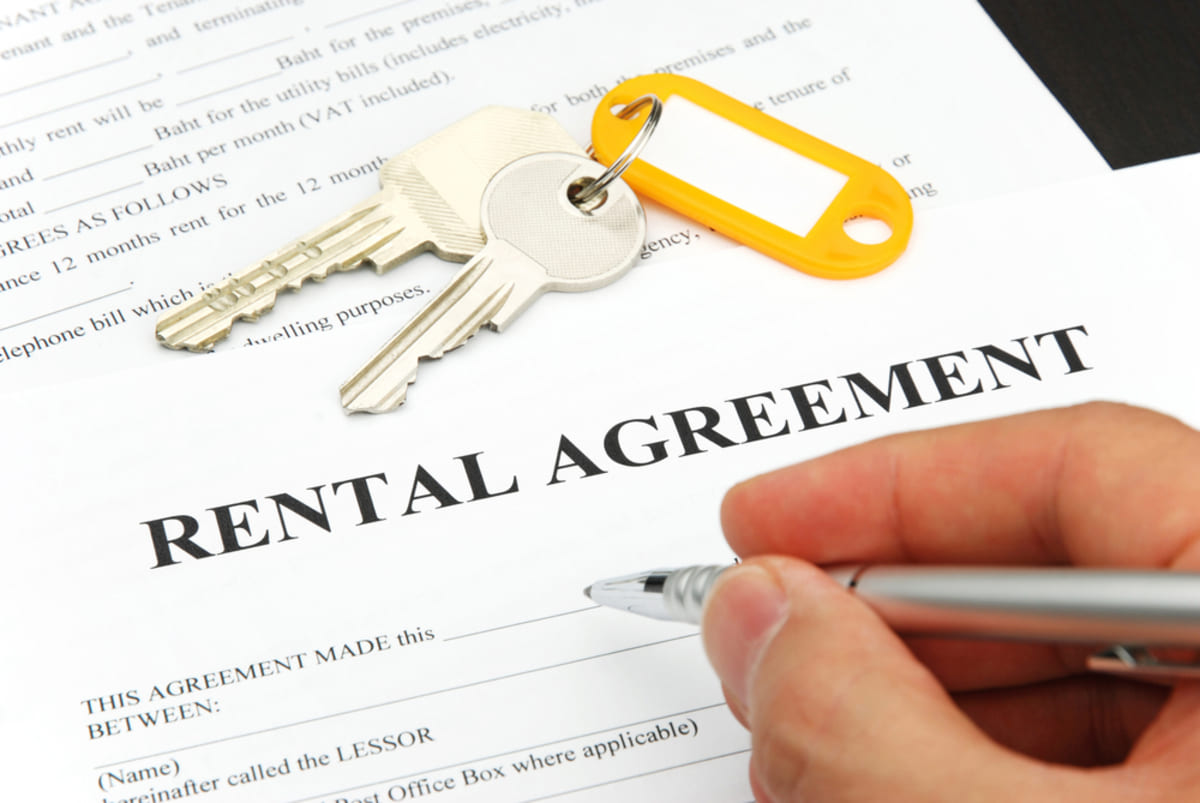Evictions can be challenging and stressful for property owners and tenants. They're costly, time-consuming, and can tarnish relationships, so it is crucial to avoid reaching this point.
We provide valuable insights on avoiding eviction, focusing on proactive strategies that rental property owners can implement. We will discuss different preventative measures that can help mitigate the risk of eviction by fostering healthy tenant relationships, maintaining communication, and understanding legal aspects.
Let's explore these strategies to create a better rental experience for all parties involved.
Communicating Proactively with Tenants
One of the critical strategies in avoiding eviction is fostering open lines of communication with tenants. As a property owner, reaching out immediately is crucial if you notice a pattern of late payments or other issues. Rather than waiting for problems to escalate, initiating dialogue often prevents minor issues from becoming significant complications.
Engaging in empathetic conversations is equally essential. Understanding the challenges tenants might face, such as job loss or unexpected medical expenses, can pave the way for mutually agreeable solutions. For instance, setting up a payment plan or temporary leniency could assist a tenant through a tough time. This strategy doesn't just help to avoid eviction—it also builds trust and respect, which may lead to long-term tenancy and decreased turnover.
Maintaining the Property to Attract Stable Tenants
Another proactive approach property owners can take to avoid eviction is ensuring timely property maintenance and repairs. A well-maintained property signifies a responsible owner, which attracts stable tenants.
Regular, scheduled property walks provide an excellent opportunity to build rapport with your tenants and spot potential issues early. These inspections allow you to identify maintenance needs and demonstrate your commitment to providing a safe and comfortable living environment.
Prompt attention to repair requests enhances tenants' trust in your management, making them more likely to comply with lease agreements and less likely to face eviction. By keeping your property in good condition, you retain your current tenants and attract high-quality potential tenants in the future. This preventative strategy not only aids in avoiding eviction but also contributes to a stable, long-term tenancy, reducing turnover and maintaining a reliable income stream.
Thorough Tenant Screening: Essential Eviction Protection
Thorough tenant screening is essential to avoiding an eviction and should never be overlooked. A sound screening process helps property owners distinguish prospective tenants who are more likely to be reliable and punctual with their rent, thereby reducing the chances of eviction proceedings in the future.
Conducting Background and Credit Checks
Start with comprehensive background and credit checks. A credit report can provide insights into a candidate's financial responsibility and payment history.
Equally important is a background check, which can reveal any previous evictions, criminal records, or other red flags. Requiring consistent criteria for all applicants helps select qualified tenants and ensures that the screening process is fair and non-discriminatory.
Verifying Income and Employment
Verification of income and employment status is crucial. Requesting recent pay stubs or tax returns can provide proof of stable income, and contacting employers can confirm job security.
Tenants should ideally have a monthly income of at least three times the rent amount. This financial stability indicates they're more likely to manage payments effectively and avoid unpaid rent.
Checking Rental History and References
Another critical step is to review the rental history and check references. Speaking with past landlords can reveal a lot about a tenant's behavior, including payment patterns and how well they maintained the property. Positive feedback from former landlords can be a good predictor of a prospective tenant's reliability.
Obtaining and verifying personal references can also give a broader view of the candidate's character and responsibility.
Meeting Prospective Tenants in Person
Finally, meeting prospective tenants in person can be telling. This step offers the chance to gauge the applicant's sincerity and to see if they will be a good fit for your property. It also lets you communicate your expectations regarding property care and timely payments.
Property owners can significantly reduce the risk of evictions by conducting a thorough tenant screening process. This proactive measure is a cornerstone in establishing a trustworthy tenant base and ensuring a peaceful and profitable rental business.
Considering Assistance Programs: A Proactive Approach to Avoid Evictions
Staying informed about available rent assistance programs, especially during periods of economic downturn, is an effective strategy for property owners seeking to avoid evictions. These programs are designed to help struggling tenants, and their assistance can prevent late payments from accumulating. By staying informed of these opportunities, you can guide your tenants toward these resources when they face difficulties.
For instance, local, state, and federal governments often launch an emergency rental assistance program during times of crisis, such as the COVID-19 pandemic, using federal money to help support tenants. These programs are designed to help those affected by job loss or income reduction to continue paying rent and utilities.
In some cases, services organizations or free legal aid might be available to help tenants navigate assistance applications or disputes. Property owners should stay updated on such legal services that could benefit tenants and prevent eviction proceedings.
As a property owner, being proactive means being aware of these initiatives and understanding the eligibility criteria and application processes. Where applicable, you can assist your tenants in applying for these programs promptly, helping to secure their financial stability and ensuring the continued payment of rent.
Remember that these assistance programs aren't just for the benefit of the tenants. By facilitating your tenant's access to these resources, you can reduce the risk of non-payment, prevent the accumulation of late payments, and, ultimately, avoid the problematic eviction process. Therefore, considering assistance programs is not just a compassionate approach—it's an innovative, strategic move for property owners.
 Clear Rental Agreements: Building Trust and Compliance
Clear Rental Agreements: Building Trust and Compliance
Clear and comprehensive rental agreements form the cornerstone of a successful landlord-tenant relationship. When both parties understand the expectations and responsibilities, it minimizes disputes and the chance of eviction-related issues. Below are key components that should be included in any rental agreement to ensure clarity and compliance.
-
Payment Schedules: Specify the due date for rent payments, acceptable payment methods, and any grace period or late fees applicable. This ensures tenants understand their financial obligations and the consequences of late payments.
-
Policies on Property Damage: Clearly define what constitutes damage versus normal wear and tear. Set out the procedures for reporting damage and the responsibilities for repair costs so tenants understand their duties to maintain the property.
-
Procedures for Handling Breaches: Outline the steps to take if the tenant breaches the agreement, whether that involves noise complaints, unauthorized occupants, or other violations. Provide a straightforward process for rectifying breaches before they escalate to eviction proceedings.
-
Subletting and Assignment: State the policy on subletting or assignment of the rental unit, including any requirements for landlord approval and the criteria that subtenants must meet.
-
Alterations to the Premises: Detail whether tenants can change the property, such as painting walls or installing fixtures, and stipulate any conditions or limitations.
-
Termination and Renewal Policies: Describe the conditions under which either party and the procedures for renewal can terminate the agreement. This gives both parties a clear understanding of the timeline and requirements for ending or continuing the tenancy.
By ensuring that your rental agreement encompasses these points, you and your tenants will have a clear, shared understanding of each party's rights and responsibilities, reducing the likelihood of eviction and promoting a stable, respectful tenancy.
Compassionate Communication: A Key Strategy to Avoid Evictions
Compassionate communication is an essential tool in property management. Approaching issues with empathy and focusing on solutions can often lead to better outcomes than confrontation or eviction.
Understand that your tenants may be dealing with their stresses and challenges. Showing understanding fosters a positive landlord-tenant relationship and increases the chances of resolving.
When discussing any problems, focus on the goal: a peaceful and mutually beneficial resolution. This means having open, honest, and respectful discussions about what has happened and what steps can be taken to resolve it. Be willing to listen to your tenant's perspective – they may have valid reasons for their actions or face circumstances beyond their control.
Negotiation is also a critical aspect of compassionate communication. There's often a middle ground that can satisfy both parties, whether adjusting the payment schedule, setting up a payment plan, or agreeing on a repair timeline.
De-escalation is always preferable to confrontation. High-tension situations rarely lead to positive outcomes and can often exacerbate the problem. Instead, aim to calm the situation, listen to your tenant's concerns, and work collaboratively towards a solution.
In short, practicing compassionate communication does more than demonstrate your empathy and understanding. It is a strategic approach that can lead to better outcomes, help avoid evictions, and foster a more positive and productive landlord-tenant relationship. This strategy, while simple in concept, can profoundly affect your property management experience.
Seeking Mediation: A Win-Win Solution to Disputes
When disputes arise between property owners and tenants that can't be resolved through direct communication, seeking mediation can be an effective strategy. A neutral third-party mediator can assist in settling disagreements objectively and fairly, providing a platform for both parties to express their concerns and work towards a mutually agreeable resolution.
Mediation is a voluntary process in which a trained mediator helps parties in a dispute communicate with each other about what is important to them and how they might resolve their differences. It is a confidential and informal approach, and its goal is not to determine who is right or wrong but to create an environment conducive to constructive dialogue.
Using a mediator can help prevent the relationship between a property owner and tenant from becoming adversarial. The mediator does not take sides or render a judgment; instead, they facilitate conversation and promote understanding. They help both parties to see the situation from the other's perspective and explore possible solutions.
This process often leads to successful outcomes for both parties. Mediators can help craft specific agreements that address all parties' needs and interests. These agreements can often be more flexible and creative than a court-imposed decision and are typically easier to implement because both parties have a hand in creating them.
Mediation often prevents the need for more costly, time-consuming, and stressful legal actions, such as filing for eviction. Property owners can save time and money by seeking mediation before eviction and preserving their relationship with the tenant. Seeking mediation is a compassionate approach to resolving conflicts and a practical and strategic move for property owners.
 Proactive Strategies on How to Avoid Eviction
Proactive Strategies on How to Avoid Eviction
Evictions are stressful and costly for both property owners and tenants. Therefore, they should be considered a measure of last resort. By implementing proactive strategies such as maintaining the property, conducting thorough tenant screening, having clear rental agreements, practicing compassionate communication, and seeking mediation during disputes, property owners can significantly reduce the risk of reaching the point of eviction.
These strategies help avoid eviction and foster a positive, respectful, and long-term landlord-tenant relationship, ultimately leading to a steady and reliable income stream for property owners and remembering that the key to successful property management lies in balancing professionalism and compassion.

